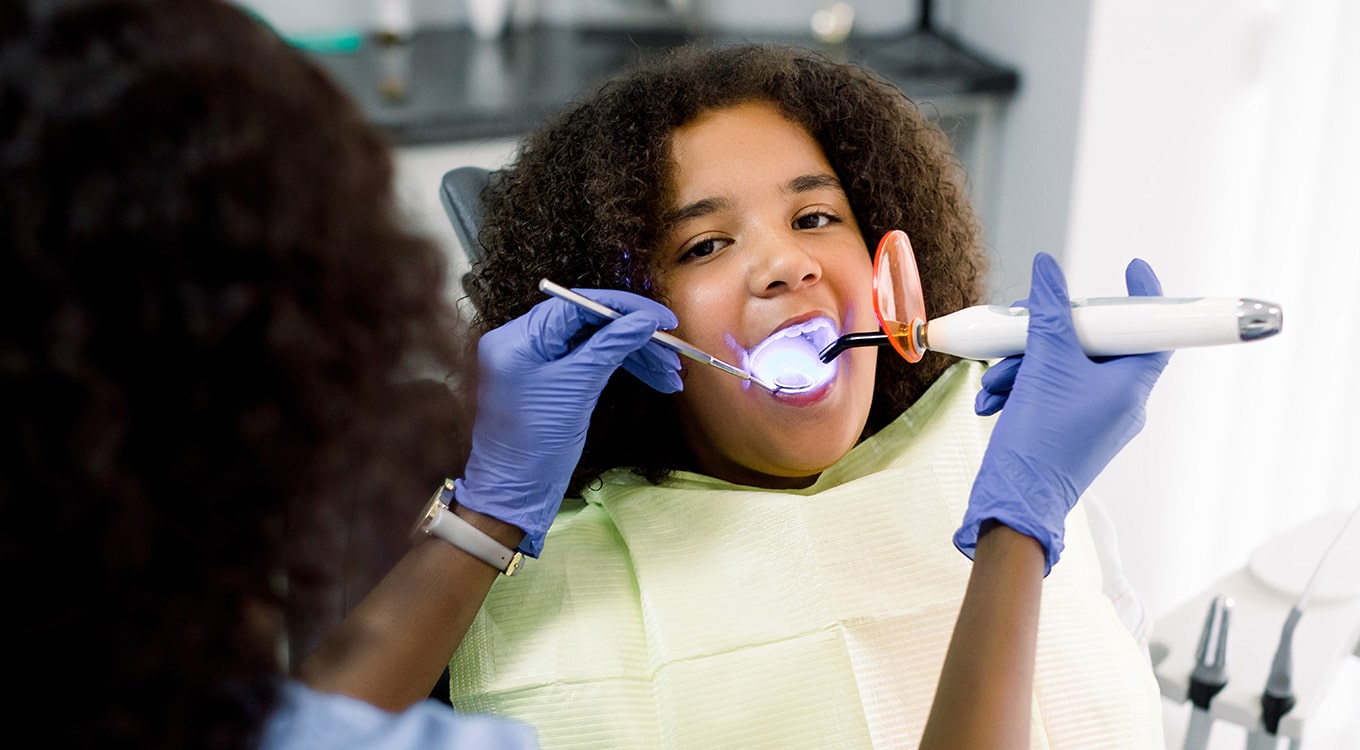24/7 Patient care team available by phone. Call to schedule an emergency appointment within 24 hours.
Cash, Credit/Debit card, Careington, Care Credit
Acceptable insurances are determined in the office at time of visit.
Toothache, root canals, tooth extractions, infected or distressed teeth, broken or damaged teeth, veneers, crowns, fillings, chipped teeth, missing teeth, dental implants, and bridges
24/7 Patient care team available by phone. Call to schedule an emergency appointment within 24 hours.
Cash, Credit/Debit card, Careington, Care Credit
Acceptable insurances are determined in the office at time of visit.
Aspen Dental is here when you're experiencing a dental emergency and finding professional care can't wait. We accept walk-in's or scheduled appointments for same-day care. Our team of emergency dentists can help you find the right solution that brings relief‐all in a compassionate & caring setting. If you have excessive pain, sudden tooth loss, or unmanageable bleeding and discomfort, don't wait, seek emergency dental services today!
If a family member experiences sudden and severe dental pain, it's only natural to be concerned. You wouldn't want them to endure sleepless nights or miss out on enjoyable activities during a vacation. While they may be hesitant initially, as the pain intensifies, they may eventually seek the help of an emergency dentist in Spokane, WA.
Dental emergencies can happen unexpectedly at any time, and our team of dentists at Aspen Dental in Spokane, WA, is prepared to provide immediate emergency dental care whenever you need it.
At Aspen Dental, we handle many dental emergency concerns daily. These include:
Toothaches are characterized by pain in or around the teeth, typically caused by irritation of the tooth's nerve in the root or surrounding area. This discomfort can be unpleasant and frustrating, often leading individuals to seek help at dental clinics. Toothaches are commonly considered dental emergencies.

The human body employs various mechanisms to defend against bacteria and infections. One of these protective measures is the formation of an abscess when there is an infection. In the case of a tooth abscess, it typically develops within the tooth when the tooth's nerve begins to decay or has already died. The abscess originates at the tooth's root tip and then extends into the adjacent bone, serving as a barrier to prevent the infection from spreading further.
Losing baby teeth is a normal part of growing up, but what worries us more is losing our permanent teeth because you cannot replace them naturally. Gum disease, tooth decay, and trauma are common causes of permanent tooth loss, especially among young individuals. Caring for our teeth is essential to prevent such loss and maintain a healthy smile.
Minor cracks, chips, or damaged teeth are known as enamel fractures, which occur on the outer surface of the tooth, known as enamel. These fractures are often shallow and may not cause immediate pain. However, it is best to visit a dentist who can assess the condition and perform dental procedures to smoothen the rough areas and restore the tooth's appearance and functionality.
If you have a chipped tooth, it is noticeable that a portion of the tooth is missing, and the broken area may feel sharp or uneven, causing discomfort. You can feel the chip in the tooth by running your finger or tongue over the affected area. Furthermore, the surrounding area of the chipped tooth may exhibit heightened sensitivity to hot or cold temperatures.
Root canal treatment is a highly effective method to save a tooth that has suffered damage or infection in its nerves and pulp. Without this treatment, the affected tooth is at risk of dying or requiring extraction.
Tooth extraction involves the removal of a tooth from its socket. While we strive to preserve teeth whenever possible, there are situations where tooth extraction is necessary to ensure the overall health of your smile. If you severely damage teeth you cannot save, tooth extraction can help restore your smile's optimal health.
If you have issues with the shape, stains, chips, or gaps in your teeth, porcelain veneers offer an effective and conservative treatment option. These natural-looking veneers can provide excellent results for patients seeking minor enhancements to their smiles. Veneers are custom-made, thin shells crafted from tooth-colored materials and specifically designed to cover the front surface of your teeth.
Dentists use composite, porcelain, or gold materials for dental fillings or restorations. However, modern restorative materials have evolved thanks to advancements in dental science and technology. Today, state-of-the-art options for dental restorations include ceramic and the latest composite materials. These advanced materials offer improved durability and aesthetics for effective tooth restoration.

Dental implants are artificial teeth designed to replace both the visible part of the tooth (the crown) and the root. They consist of two main components: the implant post and the restoration. After removing the natural tooth, a dental implant is placed in the jawbone to serve as a stable foundation for the restoration.
Dental implants offer a permanent solution for replacing missing teeth and require the same level of care as your natural teeth to ensure their functionality and stability. This involves practicing daily oral hygiene habits such as brushing and flossing and scheduling regular dentist visits for preventive care. By maintaining proper care, you can ensure the long-term success of your dental implants.
A dental bridge is a solution that can replace missing teeth, providing several benefits, such as improving your bite, preserving your facial structure, and restoring your smile. It consists of artificial teeth that bridge the gap left by missing teeth.
On the other hand, dental crowns are used to restore a tooth's appearance and functionality, especially after a restorative procedure like a root canal. Crowns are versatile and can support dental bridges, cover dental implants, or protect cracked teeth from further damage.
While it's beneficial to have an emergency dentist nearby, it's best to prevent the occurrence of a broken or painful tooth. Here are some straightforward tips to help you avoid such situations:
Use a mouthguard when engaging in sports activities.
Refrain from chewing on hard objects like nails, pens, pencils, popcorn kernels, or ice.
If you experience any of the mentioned conditions, you should contact an emergency dentist in Spokane, WA. They can provide the necessary guidance to prevent additional harm before your emergency visit. To schedule an appointment with Aspen Dental in Spokane, WA, you can call 844-511-2819.
A: Flossing helps to reduce the number of bacteria in your mouth. The microscopic creatures feed on the food particles left on your teeth. You can remove plaque by flossing. Brushing teeth may help to get rid of a few of these bacteria.
A: Saliva production decreases when you are asleep. Morning breath is a common symptom of morning breath, just as saliva is the natural mouthwash of a mouth. The bacteria in your teeth and your tongue's taste buds produce sulfur compounds. These sulfur compounds give the air a bad smell.
Office Name
Aspen Dental Spokane, WA
Dentist Name
Multiple Dentists Available
Office Address
9405 N Newport Hwy
Spokane, WA 99218
Languages Spoken
English
Emergency Weekend Dentist
Emergency Weekend Dentist
Emergency Weekend Dentist
Emergency Weekend Dentist
Emergency Weekend Dentist
Emergency Weekend Dentist
Emergency Weekend Dentist
Emergency Weekend Dentist
Emergency Weekend Dentist
Emergency Weekend Dentist